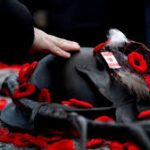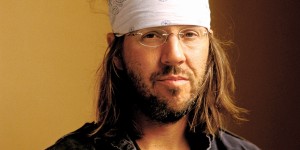He was a curious, idealistic, troubled, and relentlessly generous man. Don was a dear friend. It’s one week ago that he died alone in his apartment, gripped by a sudden exhaustion of heart that took him away before the paramedic cavalry could arrive. He stepped quietly into my mid-teen life while other mentors, more naturally gifted and better-positioned, were making other plans. Many relationship incarnations and over 30 years later, through dogged pursuits of the unattainable and countless heartbreaks – mainly his, though there was never a Significant Other that I knew – my coach and friend has passed over to “the undiscovered country”. He now plays a game with which I am not familiar. He was always a mystery, though I may have known him better than anyone. We are all, finally, mysterious to each other.
I first knew Don Wright when he was a rail-thin, silent-walking 21-year-old with curly black hair and dark eyes that looked down and away. He was probably hitting ground balls to my younger sister, the shortstop. I might’ve been jealous. Who’s this guy? He’s not from here. Maybe he’ll hit me some harder ones later.
I was about to turn 15. I had turned from my family church (though I was to embrace the Bahá’í teachings not long after). I had also turned away from the other local religion, hockey, and winters were beginning to look like an unswimmable gulf between football and baseball seasons. My father lived in the same house as me, but was a distant figure with problems of his own. I wouldn’t have been able to formulate this then, but here was a dreamy boy, revelling self-indulgently in his isolation but yearning to be found, to be coached.
Before a year had passed, winters were full. Winter meant basketball. Much of the year was, though I didn’t put away my ballglove and pigskin. And Don Wright, a Hamilton boy who worked for the Canadian National railway and lived with his mother, was suddenly very near the centre of my life. He drove a small band of us all over the region in his station wagon, one of those long sixties boats with the faux wood panelling along the side. He was feverishly learning the basketball coaching trade, trying to stay a step ahead of an eager group of late starters who shovelled small-town Canadian driveways to dream the American city game with wet feet and icy fingers.
We didn’t know much about Don, really. He’d had a Corvette, that was interesting. He worked nights, and there seemed to be endless time for us from mid-day to exhaustion. I guess that was enough of an explanation. We were young. It was the 1970s. He took us for our first McDonald’s fries, our first square Wendy’s burgers. He played James Brown on the eight-track tape deck. He taught us crossovers and the legendary practice drills of George Mikan. When he showed us the spin dribble one afternoon, I went straight to Smith’s barbershop after practice, because my long hair had whipped saltily into my eyes at every turn. Mostly, he convinced Barry, Dana, John and me — and countless others after us, without saying too much and with a passion that we had to pay attention to even notice — that basketball was a great game. I noticed. That quiet fire in him found ready fuel in me.
And Don continued to open whatever doors he could for us, mainly to gyms all over three counties. We got pretty good, I guess, and by the end of high school we toyed with our league opponents and could hang in there against the city kids. Looking back, the way we played and learned to love the game (though starting so late), and the level we attained, were amazing. Don was inexperienced as a coach, and chronically under-confident personally, but still transformed an awkward crew of hockey and baseball players, and some relative non-athletes, into a good high school team. Nobody noticed; we were a stealth mission; we were hoop crazy in a hockey town. But that was the first chapter of Don Wright’s influence on three decades of sporting and educational life in my little town, and well beyond.
Most of his career and his greatest successes, though, were spent with girls teams. They listened better. They weren’t hockey-first, as all Don’s boys teams but mine had been. They were also more likely to embrace the demanding and idealistic Don Wright agenda: your family, your faith, and your education are far more important than our basketball team, but nothing else should be. He expected commitment and sacrifice of his players. Some chafed at this, naturally, but few had any notion of how little he expected of them compared to his own levels of dedicated and fiercely loyal effort. He faced steadily recurring disappointment, given his enormous idealism, but this made the stars shine radiantly. Over the decades, Don’s mental and emotional scrapbook was brightened by the players who got it, who bought in, who said, Okay, coach. Where to now? They weren’t always the best athletes he worked with, though it was fun to see what he could do when quickness, desire and coachability inhabited the same pair of sneakers.
I wanted to coach like him. (Yes, I wanted to outdo my mentor, too. I did it differently, but with the same lofty and sometimes unbearable hopes.) We argued strategy, practice planning, skill development and game management as our coaching careers paralleled and diverged. What we mainly talked about, always, was how to reach kids. How can we get them to play together? How can we draw out their best? What’s stopping Kid A? What can I do for Kid B?
Commitment. Sacrifice. Together, we CAN. That was a team motto of Don’s for awhile. Sometimes, sad but essential to say, the sacrifices that Don made for his teams, for his players, were too much. He remained, as his coaching skill and success grew, the same shy and emotionally isolated person that I had first known as a semi-conscious teenager. His family life had been a troubled one, and his basketball family was his main support. Not surprisingly, that wasn’t always enough.
Life took some harsh turns for my mentor and friend. I’m grieved for the ways I let him down. He made some mistakes. His last years were marked by financial reversals, coaching dreams that soured, and a serious car accident that left him with a heavy limp and constant pain. He struggled – and I have long known that he always did – with a tendency toward depression, which deepened as his circumstances grew narrower, his physical suffering greater, and his capabilities at ever-greater odds with his aspirations.
But among the many reasons that I loved and admired Don, none are greater than this: in spite of those difficulties and disappointments, he kept on giving. For the last three autumns, he coached the junior girls teams at the high school across the street from the apartment where he died. A 2-10 season had only recently ended when his heart finally and suddenly gave out. Coaching, which had once fit him like the one pair of pants your belly hasn’t outgrown, was a strain. Just sitting down on the hard chairs and benches in yet another high school gym made him tired and sore, but he gave those girls everything he had. Just like always. He kept them close in games they had no business not getting hammered in. He took them on an overnight road trip to southwestern Ontario, something that inexperienced groups like this never get to do. The last pictures show smiling, laughing city girls from many cultures, posing without a care along the shores of Lake Erie. The invisible guy behind the camera is my buddy. (Can you see him yet?)
Some of these girls, the most junior leaves on Don’s basketball family tree, will be present when the clan gathers Sunday afternoon for his memorial. They’re young, but I think that they have some inkling of who he was and what he has given them– more than their fellow students who might’ve had hallway sneers or doubtful whispers for the stranger. (Who’s that fat old gimp?) I’ll be back home this weekend, in the town where my brother, Don Wright, first guided and helped me in baseball and basketball, where he showed me the immortal coach John Wooden’s “Pyramid of Success”, where he set a well-nigh impossibly high standard of giving one’s time and talent for the sake of young people. Those of us with long associations with The Wright Stuff will laugh and sorrow and remember. We’ll find, I’m sure, the joy that is behind the grieving of a life lost, both for the enrichment Don brought to our lives, and for the sense that his tiredness and troubles are over. He was a bit like Job, and I pray that his spirit knows some rest and welcome. We’ll also try to show the younger ones that there was more to the man than they know.
There always is.


